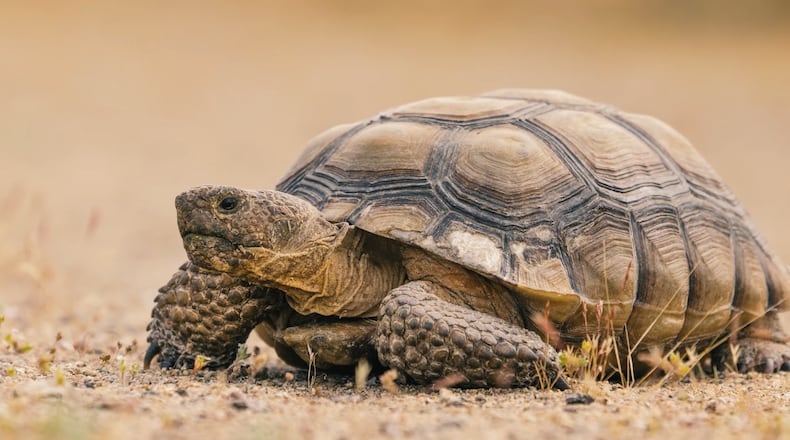The technology was featured last month in an episode of the New Yorker’s documentary series, “Eco-Hack!”
The documentary showcases the impact the “Techno-Tort Training System” may have in safeguarding the desert tortoise population, according to Cornerstone.
In the July 19 episode of “Eco-Hack!,” available on YouTube, viewers are introduced to the technology, developed by CRG with Joshua Tree, Calif.’s HardShell Labs.
The system features 3D-printed tortoise models with attack detection and species-specific, nonlethal repellent spray, which Cornerstone in a release says has “undergone field testing and has shown to be highly effective in deceiving predators and averting future attacks.”
“By addressing the critical issue of raven predation, the Techno-Tort is a game-changer, with the potential to protect countless young tortoises and foster positive behavioral changes in ravens,” Cornerstone says.
CRG created the spray device and trigger technology; the decoy shell was created by HardShell Labs, a Cornerstone representative said.
The idea is to steer ravens away from tortoise habitats without killing the birds or the tortoises.
“Conservation biology is no bed of roses, but I do believe that each of us has a role to play in at least limiting the damage that is done to the natural world around us, and at best repairing that damage,” said Tim Shields, founder and chief executive of HardShell Labs. “Access to tools is essential, as is spreading the word about the work. On both scores, [CRG] has been stellar.”
Cornerstone is aiming to build a 25,763-square-foot, 2-story facility next door to its 123,000-square-foot office and manufacturing facility at 8821 Washington Church Road in Miami Twp.
About the Author



